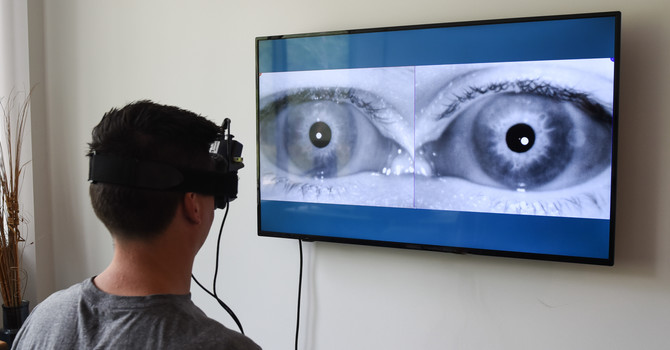
Concussions are often associated with physical symptoms such as headaches, dizziness, and cognitive fog, but their impact on mood and emotional well-being is just as significant. Many individuals who suffer a concussion experience mood changes, including depression, anxiety, irritability, and emotional instability. These changes can be distressing and may persist for weeks, months, or even longer in some cases. Understanding the neurological mechanisms behind these mood alterations is crucial for effective treatment and recovery.
How Concussions Affect Mood
A concussion is a mild traumatic brain injury (TBI) that disrupts normal brain function. The sudden force to the brain can cause microstructural damage, neuroinflammation, and alterations in neurotransmitter levels, all of which contribute to emotional and behavioral changes.
-
Disruption of Neurotransmitters
The brain relies on neurotransmitters like serotonin, dopamine, and glutamate to regulate mood and emotions. A concussion can disrupt the balance of these chemicals, leading to symptoms of depression and anxiety (Gupta & Summerville, 2021). -
Damage to the Limbic System
The limbic system, which includes structures such as the amygdala and hippocampus, plays a critical role in emotional regulation. Concussions can impair these areas, resulting in heightened emotional reactivity, irritability, and mood swings (Bigler, 2016). -
Chronic Inflammation and Oxidative Stress
Following a concussion, the brain may enter a prolonged state of neuroinflammation and oxidative stress, which has been linked to depressive symptoms and cognitive dysfunction (Kumar et al., 2018). -
Dysregulation of the Autonomic Nervous System
Many individuals with concussions experience autonomic dysfunction, which can lead to increased heart rate variability, heightened stress responses, and emotional instability (La Fountaine et al., 2020). -
Sleep Disturbances and Fatigue
Concussions often disrupt sleep patterns, leading to insomnia, excessive daytime fatigue, and increased emotional sensitivity. Poor sleep quality is a well-known risk factor for mood disorders (Trojanowski et al., 2022). -
Connectivity Changes in the Prefrontal Cortex (PFC)
Concussions can alter functional connectivity in the prefrontal cortex, a region responsible for executive function and emotional regulation. These changes can contribute to difficulties in mood stabilization, impulse control, and decision-making (Cole et al., 2019).
Mood Symptoms After Concussion
Mood disturbances following a concussion can manifest in several ways, including:
-
Depression – Feelings of sadness, hopelessness, and a lack of motivation.
-
Anxiety – Increased worry, panic attacks, and difficulty relaxing.
-
Irritability and Agitation – Heightened frustration, anger, or emotional outbursts.
-
Apathy – Reduced interest in activities that were previously enjoyable.
-
Emotional Lability – Sudden mood swings and difficulty regulating emotions.
Management and Treatment Approaches
Addressing mood changes after a concussion requires a multidisciplinary approach. Here are some key strategies for managing emotional symptoms:
-
Neurological Rehabilitation
Functional neurology interventions can help retrain the brain and restore balance to neural circuits involved in mood regulation. -
Cognitive Behavioral Therapy (CBT)
CBT has been shown to be effective in managing post-concussion depression and anxiety by helping individuals reframe negative thought patterns (Silverberg & Iverson, 2020). -
Nutritional and Functional Medicine Approaches
Anti-inflammatory diets rich in omega-3 fatty acids, antioxidants, and B vitamins can support brain healing and neurotransmitter balance (Pillinger et al., 2019). -
Exercise and Vestibular Therapy
Gradual, supervised physical activity and vestibular rehabilitation can improve autonomic regulation and reduce symptoms of anxiety and depression (Leddy et al., 2019). -
Sleep Optimization
Improving sleep hygiene, using relaxation techniques, and addressing autonomic dysfunction can enhance recovery and stabilize mood.
Conclusion
Mood changes following a concussion are common but often overlooked. By understanding the underlying neurological mechanisms and implementing targeted rehabilitation strategies, individuals can significantly improve their emotional well-being and overall recovery. If you or a loved one is struggling with post-concussive mood symptoms, seeking care from a specialist in functional neurology can provide tailored interventions to support long-term brain health.
References
-
Bigler, E. D. (2016). Neuroimaging biomarkers in mild traumatic brain injury (mTBI). Neuropsychology Review, 26(4), 243-255.
-
Cole, J. H., et al. (2019). Functional connectivity changes in the prefrontal cortex after mild traumatic brain injury. Journal of Neuroscience, 39(12), 2287-2299.
-
Gupta, R., & Summerville, G. (2021). Neurotransmitter disruption in post-concussion syndrome. Journal of Neuroscience Research, 99(8), 1981-1995.
-
Kumar, A., et al. (2018). Chronic inflammation and oxidative stress in post-concussion syndrome. Journal of Neuroinflammation, 15(1), 23-39.
-
La Fountaine, M. F., et al. (2020). Autonomic dysfunction in mild traumatic brain injury. Neuroscience & Biobehavioral Reviews, 119, 180-192.
-
Leddy, J. J., et al. (2019). Rehabilitation after concussion: A systematic review of controlled trials. British Journal of Sports Medicine, 53(6), 334-342.
-
Pillinger, T., et al. (2019). The impact of diet on neuroinflammation and depression after brain injury. Nutritional Neuroscience, 22(9), 631-643.
-
Silverberg, N. D., & Iverson, G. L. (2020). Cognitive-behavioral therapy for post-concussion symptoms. The Clinical Neuropsychologist, 34(1), 1-15.
-
Trojanowski, J., et al. (2022). Sleep disturbances following mild traumatic brain injury and their impact on mood disorders. Sleep Medicine Reviews, 62, 101-109.

Benjamin Pupo
Contact Me



